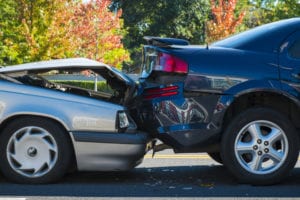
Someone Borrowed My Car and Had an Accident—Now What?
If you let others, whether it be a friend or loved one, borrow your car and they are involved in an accident, you can still be on the hook for liability. In most cases, car accident victims will include both the driver and the owner of the vehicle in their legal claim. These claims can become complicated, particularly when the person driving your car is considered the “at fault” driver.
From an insurance standpoint, it is usually the car owner’s insurance that will be the first line of defense. This may not seem like a fair result, but ultimately, you are responsible for your vehicle. That means that if you lend it out to someone else, your insurance will still be the first line of defense.
Dealing with Your Damages
If your friend or family member is the one that is at fault for the accident, your insurance will generally cover any damage to your vehicle and the driver’s injuries. You will still have to pay the deductible as required by your policy; however, this general rule only applies if you have collision coverage. Collision coverage is optional in Georgia, so you may not be able to use your own insurance for property damage.
In some situations, though, you may be able to assert a claim against the driver’s insurance if he or she was particularly irresponsible or careless. These claims can be tricky, however, and they do not apply in many situations. You may simply be out of luck for coverage regarding the property damage.
Injuries and Damages to Someone Else
Your insurance company will also be forced to pay for the other driver’s damages and injuries. This falls under your general liability coverage, which is required in the state of Georgia. If your insurance policy does not cover all of the damages because of your coverage limits, the person who was driving your vehicle may use their own insurance to cover the difference (secondary coverage). In this situation, liability insurance “follows the driver,” but the vehicle owner’s insurance limits must be exhausted before the driver’s insurance kicks in.
When you are driving someone else’s vehicle, your insurance will generally be the same as if you were driving your own car. This includes the limitations, exclusions, and other requirements. It also includes the medical portions of coverage and uninsured motorist coverage.
These general rules only apply when you allow someone to borrow your car. If, however, someone uses your car without your permission, the rules are sometimes different depending on your insurance policy language. Nonetheless, coverage may still apply even if you did not give the driver permission, but he or she lives in your household. Read your policy carefully to determine how far coverage extends.
Getting Help After an Accident
You should report all accidents to your insurance company as soon as possible. Your friend or relative should also report the accident, and the two insurance companies will often work out liability issues on their own. However, when the insurance companies cannot work out liability problems you may need the assistance of an attorney to protect your interest. If you find yourself in this unfortunate situation, call the Kennesaw car accident attorneys at Williams Elleby Howard & Easter for a free consultation at 833-LEGALGA.





